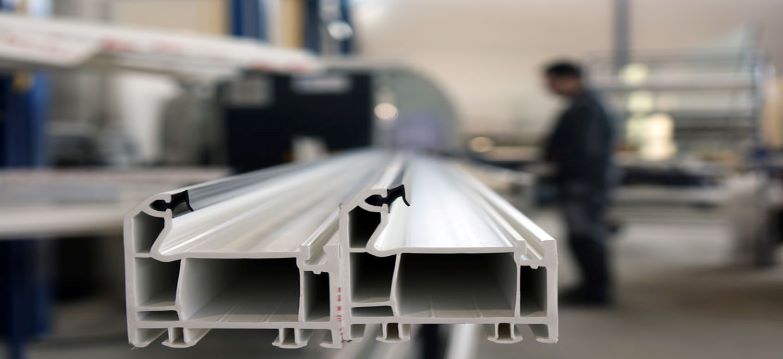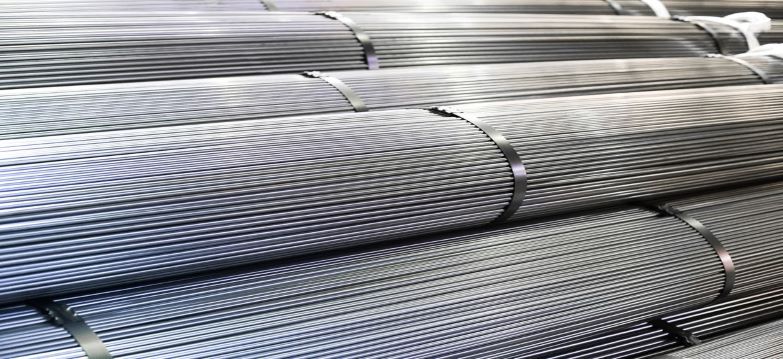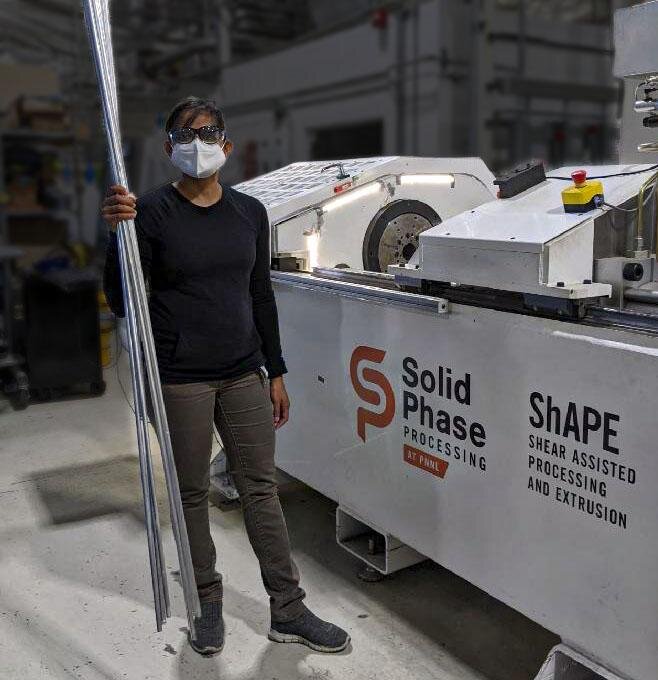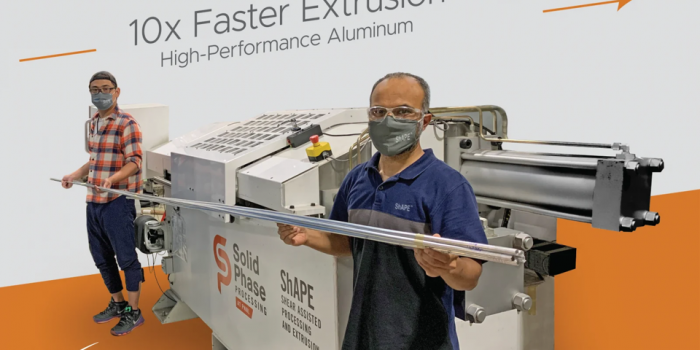Aluminium was first used back in 2014 by ford for building its F 150 truck. As a result, the truck’s weight was reduced by 700 pounds, and it was not only the weight that was affected; the milage of the truck improved. The idea was to use the same metal in roof rails, crossbeams, subframes, and other structural parts. But that hasn’t happened because these alloys are expensive. Moreover, the manufacturing speed is also one reason that has caused hindrance in its widespread use.
Now, Shear Assisted Processing and Extrusion, or ShAPE, has come in as a game-changer. This method costs way less and improves the speed of manufacturing along with its quality. It is known as alloy 7075. Approx. 30% costlier than the “6000 series” alloys that are commonly used. Alloy 7075 has a strength-to-weight ratio 85 percent higher than the alloys typically used in vehicles.

“That price differential is acceptable in aerospace applications, where lighter weight materials trump higher costs to achieve better fuel efficiency, improved manoeuvrability, and lower launch cost,” said Scott Whalen, a materials scientist who helped develop ShAPE at Pacific Northwest National Laboratory (PNNL). “But in vehicles, it’s a limiting factor that we hope to change.”
ShAPE is different in its methods. It is energy efficient and has an extremely high quality. The most important plus is that it can do so in a real quick time.

“Extensive testing shows that PNNL’s process can increase the speed by about ten times that of conventional extrusion for this alloy, using about half the energy,” said Whalen, who is the corresponding author. “Our process can extrude about 12 meters per minute with no tearing or cracking, whereas conventional extrusion is limited to about 1 to 2 meters per minute—and our process even enhances some material properties.”
ShAPE has the potential to extrude tubes, wires, and bars with strength properties that meet necessary industrial ASTM standards and ASM typical values. The secret is that the ShAPE processes in rotational motion other than the conventional linear motion. This causes it to deform as it is pushed through a die to create product shapes. The ability to process and extrude at lower temperatures is one of the reasons, ShAPE is able to produce alloy at quicker rates.

Furthermore, the ShAPE method can eliminate energy-intensive thermal treatment phases in regular extrusion, saving 50% of the energy required for alloy 7075 extrusion. Huge billets of metal must be heat treated at temperatures greater than 400°C (750°F) for a day using regular extrusion to homogenize different components like magnesium and copper throughout the alloy. ShAPE can extrude billets without homogenization, reducing the total cost of ShAPE-extruded items by 5%.
ShAPE’s quicker extrusion speed, lower energy consumption and carbon emissions may make the lightweight 7075 alloy more cost-effective for passenger vehicles. In addition, lighter cars help minimize carbon emissions in the transportation industry by improving fuel economy in internal combustion engines and driving distances per charge in EVs.


